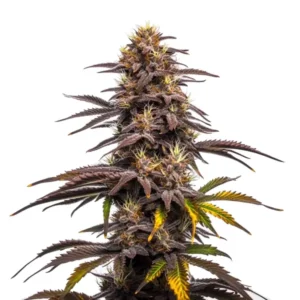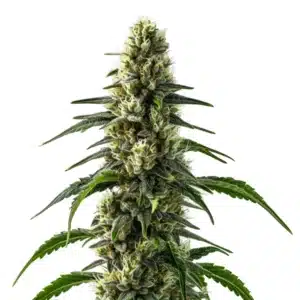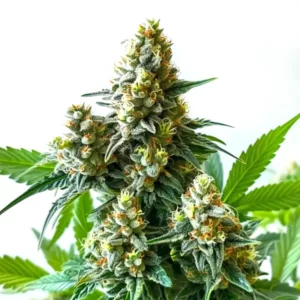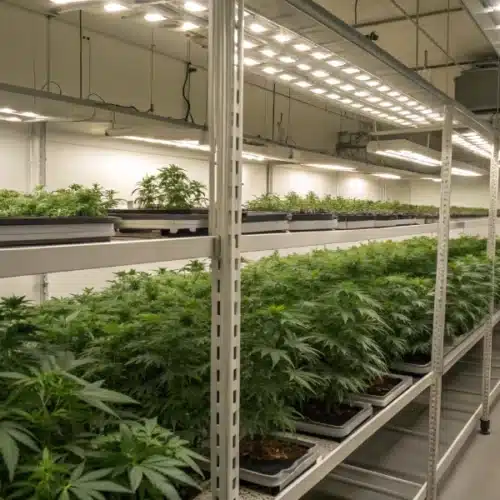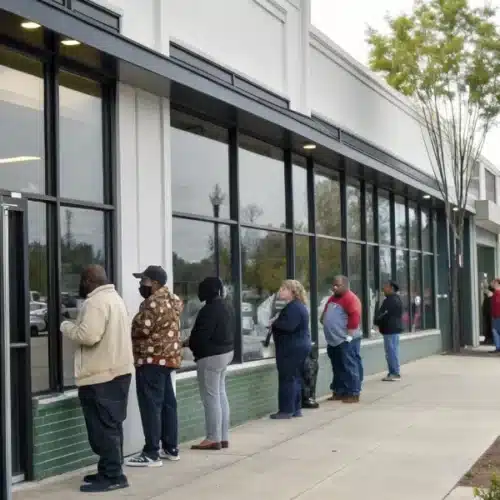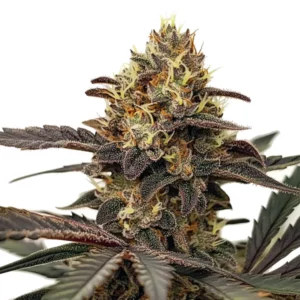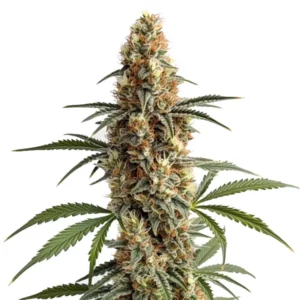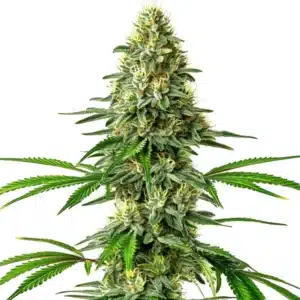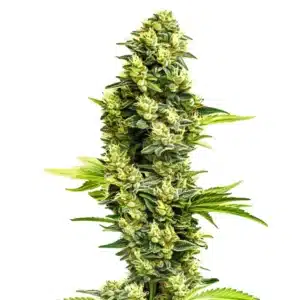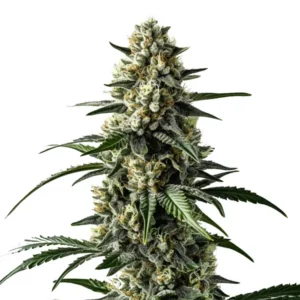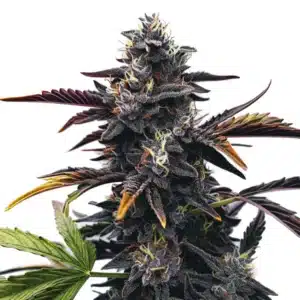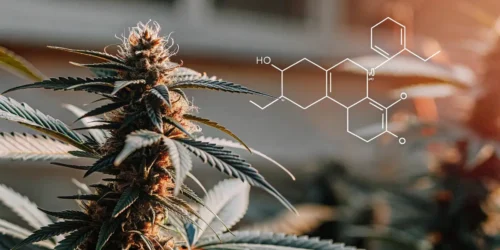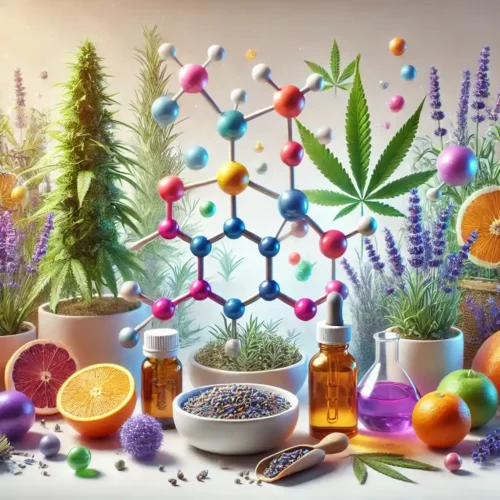Cannabis and PTSD
Cannabis and PTSD: Post-Traumatic Stress Disorder (PTSD) affects countless individuals across the globe, manifesting in intense, distressing symptoms following the experience of traumatic events. Traditional therapies, while effective for many, don’t always provide relief for all. In recent years, cannabis has emerged as a potential alternative treatment, offering hope to those who have not found relief through conventional methods.
PTSD
Post-Traumatic Stress Disorder (PTSD) is a complex and often debilitating mental health condition that arises after an individual has experienced or witnessed a traumatic event. The impact of PTSD can be profound, with symptoms that can drastically interfere with a person’s daily life and well-being.
What is PTSD?
PTSD is characterized by severe anxiety, flashbacks, uncontrollable thoughts, and recurrent nightmares related to the traumatic experience. These symptoms stem from the mind’s response to extreme stress and are part of the body’s natural survival mechanism. However, in PTSD, these responses are heightened and prolonged, failing to resolve naturally over time.
The discussion of PTSD in the context of “Cannabis and PTSD” is critical because it helps to illuminate how cannabis can be integrated into therapeutic practices to potentially alleviate these intense symptoms. The relationship between cannabis and PTSD is a focal point of current research, aiming to understand and harness the calming effects of cannabis-derived compounds like THC and CBD on the nervous system.
Symptoms of PTSD
The symptoms of PTSD are typically grouped into four main categories:
- Intrusive Thoughts: These include recurrent, involuntary memories, distressing dreams, or flashbacks of the traumatic event. Individuals may feel as though they are reliving the trauma over and over again, which can be triggered by reminders known as “cues” that resemble an aspect of the traumatic event.
- Avoidance: Individuals may avoid thoughts, feelings, conversations, activities, places, and people that remind them of the trauma. This avoidance behavior can significantly impact personal relationships and lead to isolation.
- Negative Changes in Thinking and Mood: These symptoms can include distorted feelings like guilt or blame, ongoing fear, horror, anger, detachment, or estrangement from others. People with PTSD might have difficulty remembering key features of the traumatic event or lose interest in activities that were previously enjoyable.
- Changes in Physical and Emotional Reactions: Also known as arousal symptoms, these include being easily startled, feeling tense or “on edge,” having difficulty sleeping, and experiencing angry outbursts. These symptoms can make it difficult to complete daily tasks, such as sleeping, eating, or concentrating.
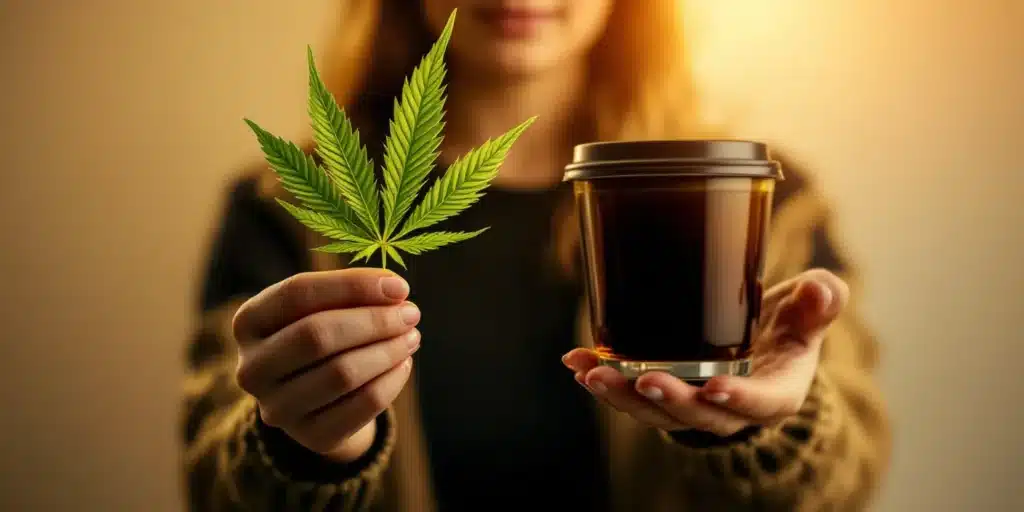
Traditional Treatments for PTSD
Traditional treatment strategies for PTSD typically include psychotherapy, medication, or a combination of both. Psychotherapy approaches, such as cognitive-behavioral therapy (CBT), exposure therapy, and Eye Movement Desensitization and Reprocessing (EMDR), are designed to help individuals process and make sense of their trauma. Medications may include antidepressants or anti-anxiety drugs to manage symptoms.
However, not all individuals respond well to these treatments, which is where the exploration of alternative treatments, such as using cannabis, comes into play. The growing interest in cannabis for PTSD treatment reflects a broader search for more effective and personalized therapeutic options, highlighting the importance of exploring how cannabinoids can interact with the body’s endocannabinoid system to potentially ease PTSD symptoms.
This thorough exploration of PTSD highlights the severity and impact of the disorder while paving the way for discussing the therapeutic potential of cannabis. Cannabis and PTSD emerge as a significant area of research into alternative, complementary treatments that could provide relief for those facing challenges with traditional therapies.
Cannabis as a Treatment for PTSD
Exploring the connection between Cannabis and PTSD highlights how this plant can be used in mental health treatments. Cannabis has been gaining ground as a legitimate treatment option for PTSD, driven by both anecdotal evidence and a growing body of scientific research. This section delves into the various ways in which cannabis is used to mitigate the complex symptoms of PTSD, offering insights into its effectiveness and mechanisms of action.
How Cannabis Can Help with PTSD
Cannabis possesses a unique range of compounds called cannabinoids, with THC (tetrahydrocannabinol) and CBD (cannabidiol) being the most prominent. These compounds interact with the body’s endocannabinoid system, which plays a crucial role in maintaining physiological and cognitive processes including mood, memory, and pain-sensation. For those grappling with PTSD, cannabis can offer several therapeutic benefits:
- Alleviating Anxiety: Cannabis, especially strains high in CBD, has been shown to reduce anxiety, a primary symptom of PTSD. Its calming effects on the brain help users manage the stress and fear associated with traumatic memories.
- Improving Sleep Quality: Insomnia and disrupted sleep patterns are common among PTSD sufferers. Certain cannabis strains can induce relaxation and drowsiness, helping to normalize sleep patterns and reduce nightmares associated with PTSD.
- Modulating Memories: THC has been observed to affect the hippocampus, the area of the brain responsible for memory. Cannabis can potentially help users by dampening the emotional impact of traumatic memories, making them less triggering.
- Enhancing Mood: The euphoric effects of THC can also provide temporary relief from depression and negative emotions that often accompany PTSD.
Scientific Studies Supporting Cannabis Use
Research into the efficacy of cannabis for treating PTSD is expanding, with several key studies highlighting its potential benefits. For example:
- A study published in the “Journal of Psychopharmacology” found that patients who used cannabis reported a significant reduction in PTSD symptoms compared to those who did not.
- Another research project noted that the use of cannabis led to a decrease in the frequency and intensity of nightmares in PTSD patients.
- Clinical trials are also examining how different ratios of THC and CBD can be optimized to treat specific symptoms of PTSD with minimal side effects.
These studies are essential in explaining how cannabis works as a treatment for PTSD, offering a scientific basis that supports the personal experiences of many veterans and trauma survivors who advocate for its use.
Considerations for Using Cannabis to Treat PTSD
While the potential benefits are promising, there are important considerations for those looking to use cannabis and PTSD treatment:
- Strain Selection: Not all cannabis strains are equal in their effects. Indica strains might be better for sleep issues, while sativa strains might be more suitable for daytime use to alleviate mood and anxiety.
- Dosage: Finding the correct dosage is critical, as too much THC can sometimes exacerbate anxiety rather than relieve it. Starting with low doses and gradually adjusting is recommended.
- Legal and Medical Guidance: It’s essential to consult with healthcare providers and understand the legal implications of using cannabis in your area.
In conclusion, cannabis presents a viable option for many PTSD sufferers, especially those who have not found adequate relief from traditional treatment modalities. By harnessing the therapeutic properties of cannabis, individuals may find a powerful ally in their battle against the debilitating effects of PTSD.
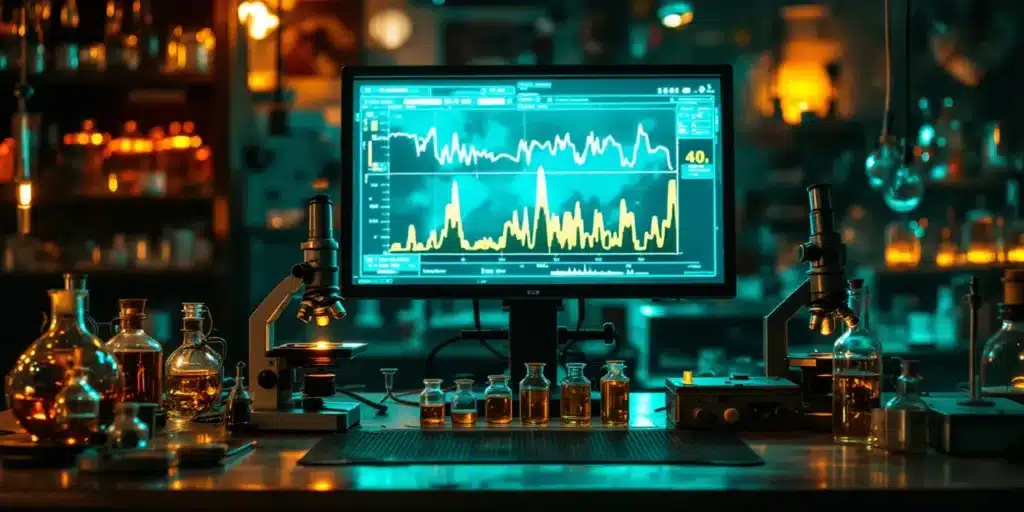
Promos & Deals
Best Strains for PTSD
When discussing Cannabis and PTSD, it’s crucial to highlight the specific cannabis strains that are known for their effectiveness in managing the symptoms associated with Post-Traumatic Stress Disorder. Selecting the right strain can significantly impact the therapeutic outcomes for PTSD patients. Here, we explore the top 10 cannabis strains that have shown potential in helping individuals cope with PTSD, providing a mix of relaxation, euphoria, and relief from stress and anxiety.
Cannabis and PTSD: Blue Dream
Blue Dream is a sativa-dominant hybrid known for its gentle cerebral invigoration. Ideal for easing tension while maintaining a sharp, focused state, Blue Dream helps manage stress without heavy sedative effects, making it a preferred choice for daytime use. The balance it offers is perfect for those who experience PTSD symptoms but still need to manage daily activities.
Cannabis and PTSD: OG Kush
OG Kush is famous for its stress-relief properties. This potent strain delivers a powerful euphoric high with substantial stress-relief effects. It’s often chosen by those needing help with mood swings and anxiety, common symptoms of PTSD. Its sedative effects can also be beneficial for those struggling with insomnia due to PTSD.
Cannabis and PTSD: Granddaddy Purple
Known for its ability to induce deep relaxation, Granddaddy Purple is typically sought after for nighttime use. This strain helps with sleep disorders—a frequent issue for those with PTSD—by calming the mind and relaxing the muscles, easing patients into a peaceful sleep.
Cannabis and PTSD: White Widow
White Widow helps enhance mood and offers energy, which can be particularly beneficial for PTSD patients dealing with depression and lethargy. This strain provides a burst of euphoria and energy, uplifting spirits and allowing individuals to engage more fully with their surroundings.
Cannabis and PTSD: Pineapple Express
This hybrid is famous for providing a long-lasting, gentle buzz. Pineapple Express combines mild body relaxation with a slight cerebral buzz, making it an excellent strain for those who need a creative escape from the cyclic thoughts associated with PTSD.
Cannabis and PTSD: Jack Herer
Jack Herer is a sativa-dominant cannabis strain that stimulates a joyful, uplifted state, which can be extremely helpful for those dealing with the depressive aspects of PTSD. Its ability to enhance sensory experiences while promoting a happy, clear-headed high makes it ideal for daytime use.
Cannabis and PTSD: Girl Scout Cookies
For those who need potent relief, Girl Scout Cookies (GSC) offers powerful euphoria paired with high levels of THC, which can help combat anxiety and stress. It’s also known for its ability to induce relaxation, making it another good option for PTSD patients who experience intense anxiety.
Cannabis and PTSD: Harlequin
Harlequin is one of the most popular strains for medical use because of its high CBD content, which helps counteract the psychoactive effects of THC. The calming, anti-anxiety effects of CBD are crucial for managing anxiety without significant psychoactive effects, making Harlequin a top choice for PTSD patients during the day.
Cannabis and PTSD: Cannatonic
Another high-CBD strain, Cannatonic, offers calming and soothing effects which are perfect for those who need to manage anxiety and stress without a strong high. Its low THC content makes it suitable for those who are new to cannabis or sensitive to the psychoactive effects of THC.
Cannabis and PTSD: Northern Lights
Northern Lights is one of the most famous indica strains known for its fast-acting, soothing effects, which can be very beneficial for those with PTSD. It helps to quiet the mind and relax the body, providing relief from night terrors and difficulty sleeping.
Each of these strains offers unique benefits that can address various aspects of PTSD, from anxiety and stress to depression and insomnia. It’s important for individuals to consult with a healthcare professional experienced in cannabis use to find the most suitable strain for their specific symptoms and to ensure that their treatment is both safe and effective.
Best spray Terpenes for PTSD
When considering the therapeutic benefits of cannabis, it’s essential to recognize how terpenes contribute to the overall effects. These aromatic compounds are not only responsible for the distinct smells and flavors of different cannabis strains but also contribute significantly to the effects of cannabis on the body and mind. For individuals dealing with Post-Traumatic Stress Disorder (PTSD), certain terpenes can be particularly beneficial in managing symptoms such as anxiety, insomnia, and chronic stress.
What are spray Terpenes?
spray Terpenes are naturally occurring compounds found in many plants, but they are particularly abundant in cannabis. These compounds interact with the body’s endocannabinoid system and can influence neurotransmitters in the brain, affecting mood, pain sensation, and stress response. This interaction is a key component of the entourage effect, where the therapeutic impact of the whole plant is greater than the sum of its parts.
Top spray Terpenes for PTSD and Their Effects
Several terpenes are known for their potential to help alleviate symptoms associated with PTSD. Here’s a closer look at some of the most effective terpenes for this condition:
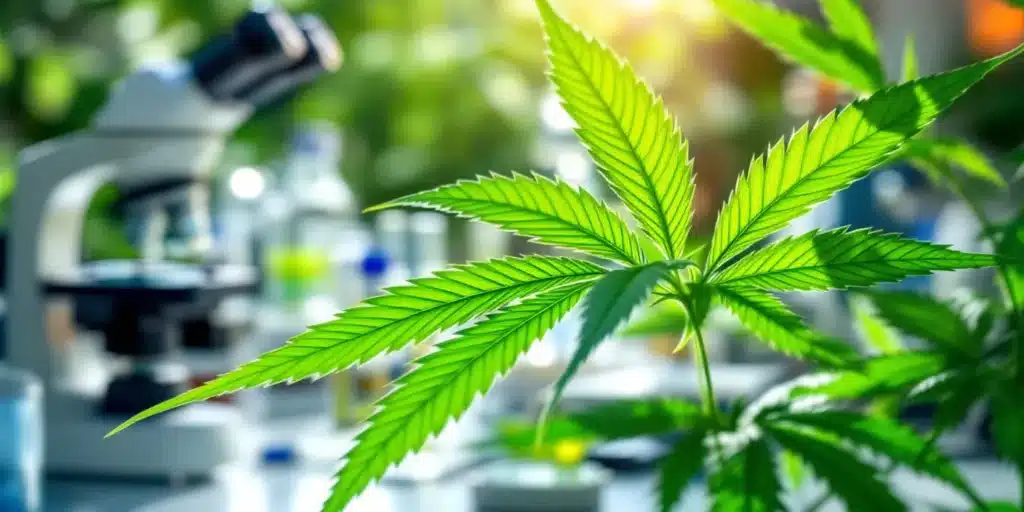
Myrcene
- Properties: Myrcene is one of the most abundant terpenes in cannabis. It is known for its earthy, musky notes, similar to cloves.
- Effects: It has a sedative effect, making it excellent for patients suffering from sleep disturbances, a common issue in PTSD. Myrcene also has anti-inflammatory and analgesic properties, helping to relieve physical discomfort that can accompany chronic stress.
Linalool
- Properties: Linalool gives off a floral scent and is also found in lavender, which is widely used for its calming effects.
- Effects: Linalool can help to reduce anxiety and elevate mood. It also assists in moderating the stress response by affecting the body’s serotonin release, which is crucial for individuals with PTSD.
Caryophyllene
- Properties: Caryophyllene has a spicy, peppery aroma and is also found in black pepper, cinnamon, and cloves.
- Effects: This terpene is unique because it can directly interact with the CB2 receptors in the endocannabinoid system, acting as a cannabinoid. It’s known for its anti-inflammatory, analgesic, and anxiolytic properties, helping to reduce stress and anxiety.
Pinene
- Properties: As the name suggests, pinene has a sharp pine aroma. It’s one of the most common terpenes in the natural world and can be found in pine needles, rosemary, and basil.
- Effects: Pinene is beneficial for combatting anxiety and stress. It also has the added benefit of counteracting some of the cognitive deficits and memory loss associated with PTSD.
Limonene
- Properties: Limonene has a citrusy scent and is predominant in citrus fruits.
- Effects: It is well-regarded for its stress-relieving and mood-enhancing properties. Limonene can also boost the immune system and alleviate symptoms of depression and anxiety, making it especially valuable for PTSD patients.
Integrating spray Terpenes into PTSD Treatment
Which terpenes are most beneficial for PTSD can guide individuals in selecting specific cannabis strains that are rich in these compounds. For those who prefer not to consume cannabis, terpene extracts can sometimes be used in aromatherapy, providing a non-invasive way to harness their therapeutic benefits.
FAQs on Cannabis and PTSD
Here are some frequently asked questions that delve deeper into the use of cannabis for treating Post-Traumatic Stress Disorder (PTSD):
Can cannabis cure PTSD?
Cannabis does not cure PTSD, but it can significantly alleviate symptoms associated with the condition, such as anxiety, insomnia, and recurrent distressing memories. Many individuals find cannabis helps manage the intensity and frequency of their symptoms, improving overall quality of life.
Is it safe to use cannabis daily for PTSD symptoms?
While many individuals use cannabis daily to manage PTSD symptoms, it’s essential to consider personal tolerance, the type of cannabis used, and the method of consumption. It’s advisable to consult with a healthcare provider familiar with cannabis to establish a treatment plan that considers all aspects of your health.
Can I develop a dependency on cannabis if I use it for PTSD?
Dependency on cannabis is possible, particularly if used frequently and in large doses. It is crucial to monitor usage patterns and discuss them with a healthcare provider. Dependency risk can be minimized by using the smallest effective dose and taking regular breaks from use.
How do I choose the right cannabis strain for my PTSD symptoms?
Choosing the right strain involves considering the terpene profile and cannabinoid content that best aligns with your symptoms. For example, strains high in myrcene and linalool can be beneficial for sleep issues, while those high in limonene might be better for mood elevation. It’s often helpful to start with a low dose of a strain recommended by a dispensary or a healthcare provider and adjust based on how it affects your symptoms.
Are there any legal issues I should be aware of when using cannabis for PTSD?
The legality of cannabis varies by location, both in terms of medical and recreational use. Always check the local laws in your area regarding cannabis possession, consumption, and cultivation. In places where cannabis is legal for medical use, you will typically need a diagnosis and a prescription or recommendation from a qualified healthcare provider.
Can I use CBD for PTSD instead of cannabis?
Yes, CBD, a non-psychoactive component of cannabis, is an option for those who want the benefits of cannabis without the psychoactive effects associated with THC. CBD has been shown to help with anxiety and insomnia associated with PTSD. It’s available in various forms, such as oils, tinctures, and capsules.
What should I do if I experience adverse effects from using cannabis for PTSD?
If you experience adverse effects such as increased anxiety, paranoia, or any other uncomfortable symptoms, it’s important to stop using cannabis and consult with a medical professional. Adjusting the strain, dosage, or method of consumption might be necessary.
Can cannabis be used in conjunction with other PTSD treatments?
Yes, cannabis can often be used alongside other treatments such as psychotherapy and medication. However, it’s important to coordinate your treatment plans with your healthcare provider to ensure that there are no adverse interactions and to optimize your overall therapy approach.
These FAQs offer practical insights and helpful advice for those considering cannabis as part of their PTSD treatment plan. Like any treatment, personalization and professional guidance are essential for finding the most effective approach.


